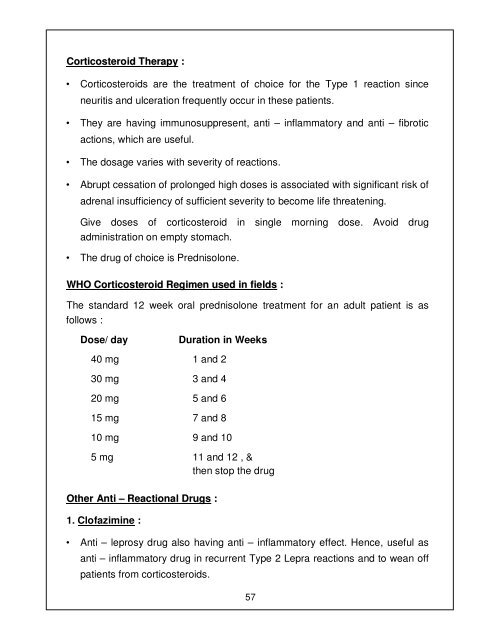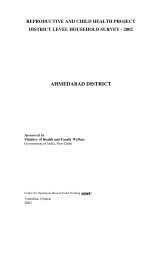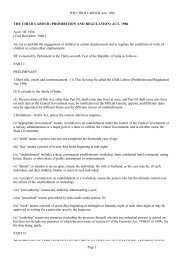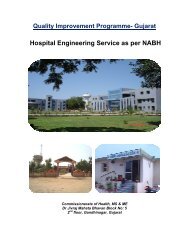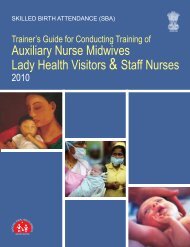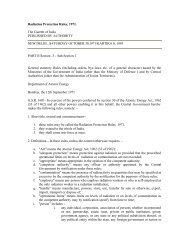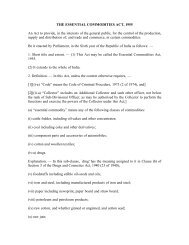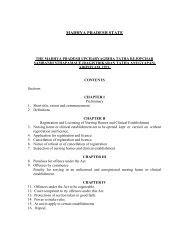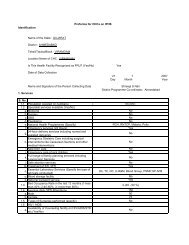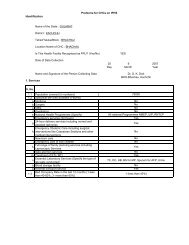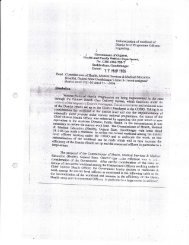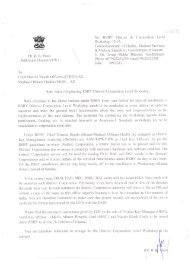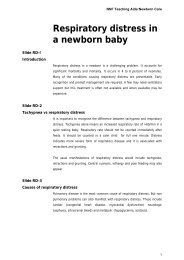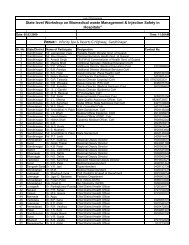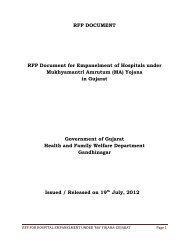Leprosy Training Module for Medical Officers
Leprosy Training Module for Medical Officers
Leprosy Training Module for Medical Officers
Create successful ePaper yourself
Turn your PDF publications into a flip-book with our unique Google optimized e-Paper software.
Corticosteroid Therapy :<br />
• Corticosteroids are the treatment of choice <strong>for</strong> the Type 1 reaction since<br />
neuritis and ulceration frequently occur in these patients.<br />
• They are having immunosuppresent, anti – inflammatory and anti – fibrotic<br />
actions, which are useful.<br />
• The dosage varies with severity of reactions.<br />
• Abrupt cessation of prolonged high doses is associated with significant risk of<br />
adrenal insufficiency of sufficient severity to become life threatening.<br />
Give doses of corticosteroid in single morning dose. Avoid drug<br />
administration on empty stomach.<br />
• The drug of choice is Prednisolone.<br />
WHO Corticosteroid Regimen used in fields :<br />
The standard 12 week oral prednisolone treatment <strong>for</strong> an adult patient is as<br />
follows :<br />
Dose/ day<br />
Duration in Weeks<br />
40 mg 1 and 2<br />
30 mg 3 and 4<br />
20 mg 5 and 6<br />
15 mg 7 and 8<br />
10 mg 9 and 10<br />
5 mg 11 and 12 , &<br />
then stop the drug<br />
Other Anti – Reactional Drugs :<br />
1. Clofazimine :<br />
• Anti – leprosy drug also having anti – inflammatory effect. Hence, useful as<br />
anti – inflammatory drug in recurrent Type 2 Lepra reactions and to wean off<br />
patients from corticosteroids.<br />
57


